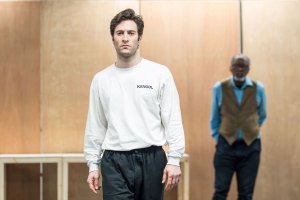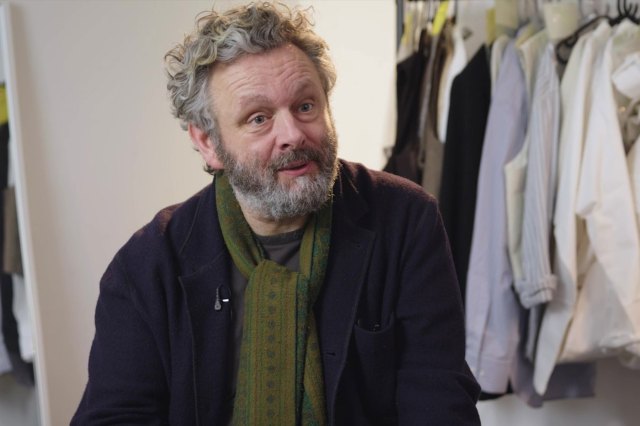Becoming an Actor: Drama School or University
AS Level results are in, and the time has come to start thinking about higher education.
DAD: Wait, wait, wait – you want to go to drama school? Why?
JAMES: Well, obviously to be an ©\
DAD: It’s a difficult ©\
JAMES: I know it’s difficult career!
MUM: I think he should do it. You should follow your dream.
JAMES: I’m not following a dream, mum; I’m pursuing something I’m good at.
MUM: Well… that’s what I mean.
JAMES: Calling it a dream just undermines the reality of it.
MUM: Sorry, James.
DAD: Don’t you think you should get a proper degree first?
JAMES: What’s a ‘proper degree’?
DAD: Don’t be facetious. Having a degree behind you is a safety net. Hugh Laurie, Stephen Fry, Rory Kinnear, they all went to university first.
I’m sure that’s an argument that will be familiar to a lot of families ©\ it’s certainly one that I’ve been a part of, though I should say, for the sake of my parents, I’m not quoting.
What’s the best way in?
I can understand my parent’s worry. Acting is an unstable profession at the best of times but, at the best of times, it’s also inspiring, exciting and stimulating. The big question is what’s the best way in, through drama school, or from university.
The biggest positive of drama school is obvious; it’s an intensive three©\year preparation for a career in the arts. The course is designed to get you physically, mentally and vocally ready for a lifetime, we hope, of acting.
Conversely at university, although you might perform regularly in the drama society, you don’t get anywhere near the focus on specific vocal technique, the chance to develop skills like stage combat, nor the benefits of understanding different approaches to acting, that you find at drama school.
Aside from the training, drama schools also thrust you in front of agents, directors and casting directors in an attempt to give you a leg up over the wall of other fresh faces. That sort of showcase is great but when you consider that Trevor Nunn directed Cymbeline for the Marlowe Society at Cambridge University a few years ago, and that agents also make the effort to visit university shows (Vanessa Kirby of The Hour and Great Expectations on the BBC, was snapped up whilst she was at Exeter) it does make you wonder how vast the difference really is.
We shouldn’t forget that many of the veteran actors on our stages didn’t train at all, but learnt on the job – and although I’ll continue learning for long after I leave drama school, perhaps that is the only learning that’s really essential.
There is also stability of living to take into account. Having a university degree behind you is definitely a safety net, but does the lack of a degree push you to find more acting work, simply because you need it? The other side of that coin is that having a university degree puts less significance on each audition you do, because you’ve got a means of getting by without the job, therefore you have less of whiff of desperation about you and are, potentially, more free and open in auditions.
One of the benefits of going to university is the life experience it offers; at drama school you’re in classes all day everyday without the energy to go drinking midweek, or to earn the money to travel in the holidays. Your life experiences influence how you perform on stage, the more you’ve got under your belt, the more of an empathetic actor you can be.
Aside from life experience you also don’t have to deal with relatives forcing a smile and telling you that it’s great that you’re “following your dream”, “doing something you love” and other phrases that cloak their true thoughts towards your career choice.
Projecting my insecurities?
I sometimes wonder if what I’ve labeled as insecurities are actually just rational thoughts. Do you really need to roll around the floor at 9.30am on a Tuesday morning pretending to be a forest fire in order to be a better actor? – Some people are learning to save lives.
Remember too that after University you can still go to drama school. Although a lack of government funding makes it difficult to do a second degree, plenty of drama schools offer two©\year, post©\graduate courses that immerse you just as fully as the three©\year acting degrees do. Though, that does mean you might not start acting professionally until you’re 23, which, with the Twilight climate, could be a downside.
It’s an interesting debate, and something you certainly should be debating if you’re considering a career as an actor. Personally, I would argue that if you really want to act then you shouldn’t even be thinking about doing anything else – after all, how many trainee lawyers learn to be doctors first, just incase being a lawyer doesn’t work out? Whatever you decide, don’t look back, as the day you let your worries out will probably be the day you convince yourself to do something else.
For me it’s too late to consider. All I need to cling on to is that most of the time I like acting, and I know some of the time I can do it, it’s just whether anyone will give me the time and if they don’t, what will I do?












